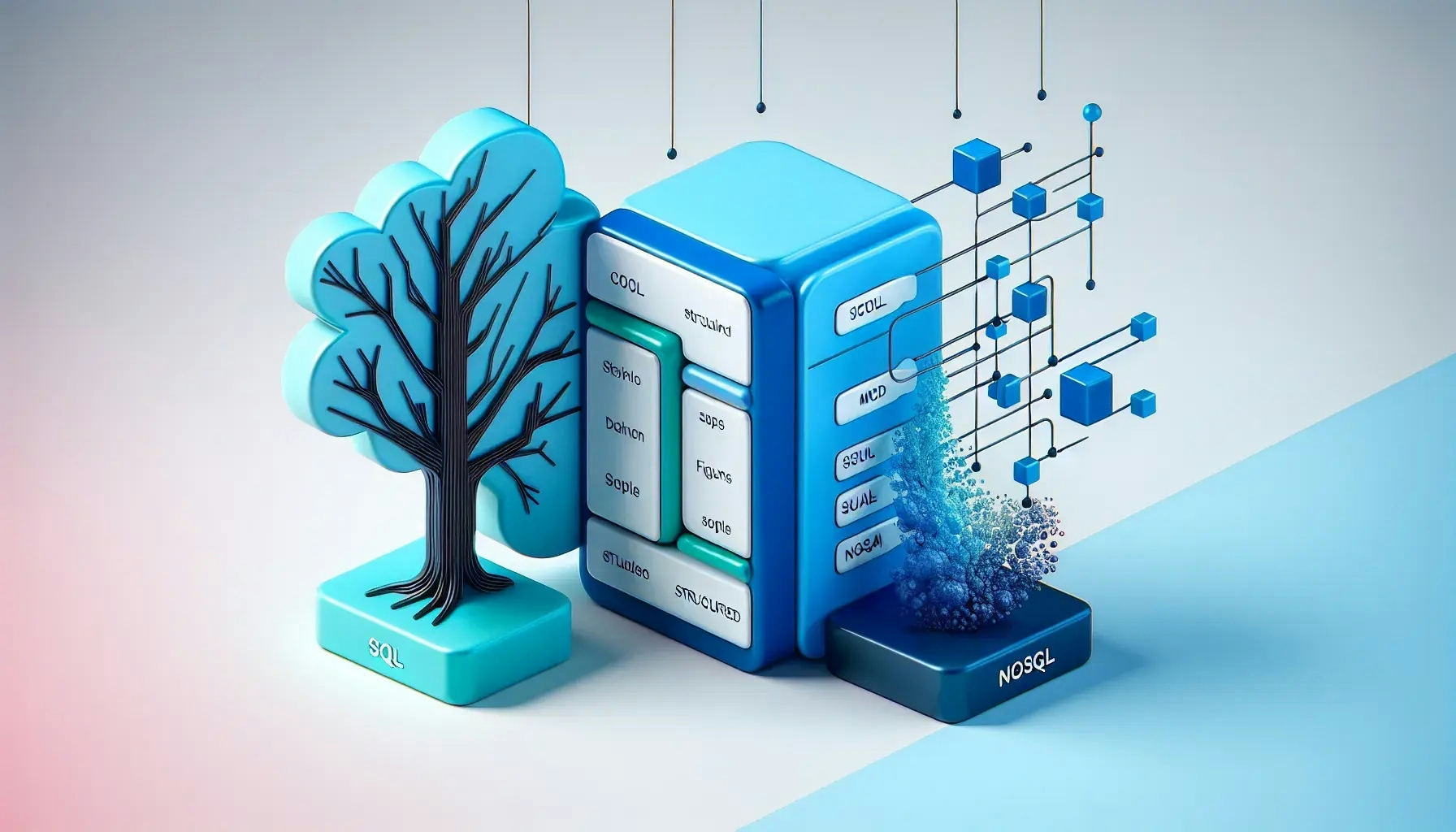In the realm of data management, two prominent players are SQL and NoSQL. Both have unique characteristics, advantages, and disadvantages. This blog post aims to shed light on these two technologies, highlighting their differences and helping you make an informed decision about which one to use in your next project.
Understanding SQL: An Overview
SQL, or Structured Query Language, is a traditional database management system. It uses a relational model, meaning data is organized into tables. Each table has a unique key identifying each record, making it easy to retrieve specific data.
SQL databases follow ACID (Atomicity, Consistency, Isolation, Durability) properties, ensuring reliable processing of data. They are also schema-based, meaning the structure of the data needs to be defined before you can work with it. This makes SQL databases highly structured and reliable, but it can also make them less flexible.
SQL databases are widely used in industries where data integrity is paramount. This includes finance, healthcare, and any other industry that needs to ensure data accuracy and consistency. However, they can struggle with large volumes of data and horizontal scaling, which is where NoSQL databases come into play.
Delving into NoSQL: A Comprehensive Look
NoSQL, or "Not Only SQL", is a non-relational database management system. It's a newer technology, designed to overcome the limitations of SQL databases. NoSQL databases are particularly good at handling large volumes of structured, semi-structured, and unstructured data.
Unlike SQL databases, NoSQL databases do not require a fixed schema, and they avoid join operations. They can also scale horizontally, meaning they can handle larger data loads by distributing data across multiple servers.
NoSQL databases follow the BASE (Basically Available, Soft state, Eventually consistent) model, which allows for more flexibility but less consistency compared to SQL databases. They are often used in big data and real-time web applications, where the ability to store and process large amounts of data quickly is crucial.
Key Differences Between SQL and NoSQL
The primary difference between SQL and NoSQL lies in their data structure. SQL databases use a tabular structure, making them a good fit for applications that require multi-row transactions such as accounting systems or systems that need to manage relations between entities.
On the other hand, NoSQL databases can store data in several ways: key-value pairs, wide-column stores, graph databases, or document databases. This makes NoSQL databases highly versatile and suitable for a wide range of applications.
Another significant difference is the scalability. SQL databases are vertically scalable, which means adding more power (CPU, RAM, SSD) to the server to improve performance. In contrast, NoSQL databases are horizontally scalable. You can add more servers to the database to handle large amounts of data.
Pros and Cons of SQL and NoSQL
SQL databases have been around for a long time and have a proven track record of reliability. They are excellent for ensuring data integrity and are ideal for complex queries. However, they can be less suitable for handling large volumes of data or unstructured data.
NoSQL databases, on the other hand, are excellent for working with large or unstructured data sets. They are highly scalable and have flexible data models. However, they can lack the robustness of SQL databases, and data consistency can be a challenge.
Choosing Between SQL and NoSQL
The choice between SQL and NoSQL depends largely on the specific requirements of your project. If your project involves complex transactions requiring multiple operations or queries, an SQL database may be more suitable. On the other hand, if your project needs to handle large amounts of data or unstructured data, a NoSQL database may be a better choice.
It's also important to consider the resources available to you. SQL databases may require more powerful hardware for scaling, while NoSQL databases can scale across multiple servers.
The Future of SQL and NoSQL
Both SQL and NoSQL databases have a place in the future of data management. SQL databases are unlikely to go away anytime soon, given their reliability and wide usage. NoSQL databases, while newer, are also gaining popularity due to their scalability and flexibility.
In the future, we may see more hybrid models that combine the strengths of both SQL and NoSQL. These hybrid models could provide the structure and reliability of SQL with the scalability and flexibility of NoSQL.
Wrapping Up: SQL vs NoSQL
SQL and NoSQL are both powerful tools for managing data. While they have their differences, the choice between SQL and NoSQL should be based on the specific needs of your project. By understanding the strengths and weaknesses of each, you can make an informed decision that best suits your data management needs.

